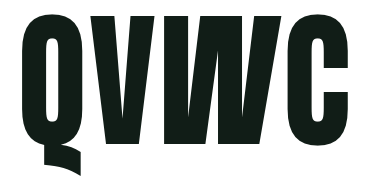Say Hello - Doing Disability Activism My Own Way
Around a year ago, I got a book deal to write a memoir. Due out early next year, Say Hello will tell my story of life with the rare, severe skin condition ichthyosis. Writing this book has been the hardest thing I’ve ever done, but not just because of the length or the subject matter. It’s because in the process of writing this book, my disability activism has been questioned.
There has been silence from people I thought were friends. There have been suggestions about what I need to include in my book – well-meaning guidance, I suspect, but this book is about my own experiences. There have been whisperings that I am not doing activism ‘right’ through writing this book. I’ve been called too mainstream. The title evokes inspiration porn; it’s self-promotion and brand-building. There’s been criticism of me making money. There are complaints that there aren’t enough #ownvoices in disability literature, but since I’ve been given a book deal, there have been complaints about that.
I’ve realised that it’s frowned upon if disabled people have individual success – it must be collective.
Criticisms from within my own community have been the biggest causes of self-doubt, and seen my concerns grow even louder.
There have been the usual challenges in writing this memoir: I worry about upsetting people I know with what I write about them. I’ve caught a glimpse of ugly sides of myself in the mirror, and delving into my history, I’ve found things I don’t like about myself, or that I could have done better. Putting words on a page helps me come to terms with those things, and strive to do better in the future.
But criticisms from within my own community have been the biggest causes of self-doubt, and seen my concerns grow even louder. I’ve called my publisher and agent, worried I can’t do this. I’ve woken my partner screaming from a nightmare that my book has set disability rights behind. A month out from the second draft due-date, I’ve been self-censoring because my greatest fear is letting the disability community down.
As well as being a part of various disability and illness communities, I’ve written for the mainstream for years, through the media and my blog – how can I change perceptions by writing solely in a closed space? The title is inviting people to communicate with me, rather than looking away. While my book is about me, I always try to amplify other voices that are less heard. Yes, I’m being paid to write it, but it works out to be a very modest wage over almost two years. Also, isn’t being paid what activists – including me – have fought for? Finally, I see my individual success having an impact on collective communities.
Just as disability is diverse, so is the scope of what activism can look like.
Many disability activists are burnt out because of the expectations around how they should do activism. Tone policing and purity politics are scare tactics which distract from actually getting the work done.
I admit to have been guilty of criticising others in the same way in the past, and regret telling activists how I think they should do their work. I recognise now that just as disability is diverse, so is the scope of what activism can look like.
When I voiced my sadness recently, a friend told me they received great advice from a university lecturer – to have one foot in the margins and one foot in the mainstream, in order to create change. This is how I want to do activism.
Say Hello will be the book I needed to read when I was younger. I didn’t have any role models with my condition until I searched the internet in my teens. There were no memoirs on ichthyosis – only medical textbooks with people’s faces blacked out.
I didn’t identify as disabled until my mid-twenties, when I realised I experienced the same barriers as other disabled people. Perhaps if I had read about disabled people’s firsthand experiences when I was younger, I might have realised my own identity, and received a much-needed confidence boost, much sooner.
Say Hello will be the book I needed to read when I was younger.
My book is at once personal and political, from my own heart and experiences. As well as telling my story, it offers readers advice on how to interact with someone who looks different. It includes disability politics and feminism, and messages to people with ichthyosis and their parents. It is not only for disabled readers – I hope people who are keen to learn more about disability politics and pride will get something out of it, too.
My memoir is for the young people with ichthyosis, for the parent who worried about the future of her child, for the woman a few years older than me who worried about wearing a summer dress until she saw my outfit photo.
It’s for the people like my long-ago self, who yearned to see their truths represented in someone else’s life story – to know that they aren’t alone.
I could either be stifled by fear and do nothing at all to create change, or do activism my own way, and create something I needed when I was younger. I want to see my book on the shelves next to many other disabled people’s. There’s room for all of us.
Carly Findlay is an award-winning writer, speaker and appearance activist. She writes at carlyfindlay.com.au. Say Hello will be published by HarperCollins in early 2019.
